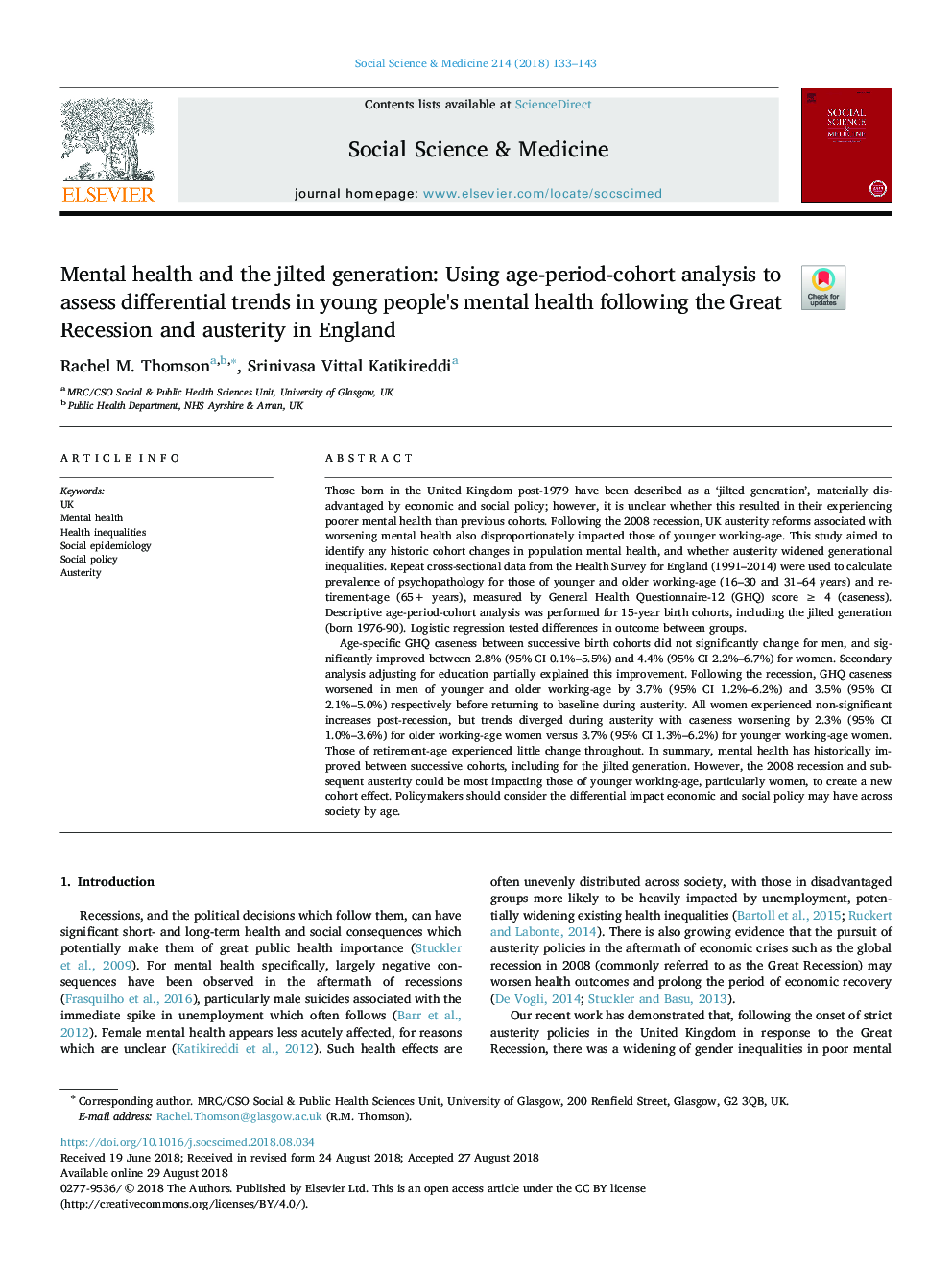| کد مقاله | کد نشریه | سال انتشار | مقاله انگلیسی | نسخه تمام متن |
|---|---|---|---|---|
| 10127657 | 1645069 | 2018 | 11 صفحه PDF | دانلود رایگان |
عنوان انگلیسی مقاله ISI
Mental health and the jilted generation: Using age-period-cohort analysis to assess differential trends in young people's mental health following the Great Recession and austerity in England
ترجمه فارسی عنوان
سلامت روان و نسل خفته: با استفاده از تحلیل سن-دوره-کوهورت برای ارزیابی روند دیفرانسیل در سلامت روان جوانان پس از رکود بزرگ و ریاضتی در انگلستان
دانلود مقاله + سفارش ترجمه
دانلود مقاله ISI انگلیسی
رایگان برای ایرانیان
کلمات کلیدی
انگلستان، سلامت روان، نابرابری های بهداشتی، اپیدمیولوژی اجتماعی، سیاست اجتماعی، ریاضت،
موضوعات مرتبط
علوم پزشکی و سلامت
پزشکی و دندانپزشکی
سیاست های بهداشت و سلامت عمومی
چکیده انگلیسی
Age-specific GHQ caseness between successive birth cohorts did not significantly change for men, and significantly improved between 2.8% (95% CI 0.1%-5.5%) and 4.4% (95% CI 2.2%-6.7%) for women. Secondary analysis adjusting for education partially explained this improvement. Following the recession, GHQ caseness worsened in men of younger and older working-age by 3.7% (95% CI 1.2%-6.2%) and 3.5% (95% CI 2.1%-5.0%) respectively before returning to baseline during austerity. All women experienced non-significant increases post-recession, but trends diverged during austerity with caseness worsening by 2.3% (95% CI 1.0%-3.6%) for older working-age women versus 3.7% (95% CI 1.3%-6.2%) for younger working-age women. Those of retirement-age experienced little change throughout. In summary, mental health has historically improved between successive cohorts, including for the jilted generation. However, the 2008 recession and subsequent austerity could be most impacting those of younger working-age, particularly women, to create a new cohort effect. Policymakers should consider the differential impact economic and social policy may have across society by age.
ناشر
Database: Elsevier - ScienceDirect (ساینس دایرکت)
Journal: Social Science & Medicine - Volume 214, October 2018, Pages 133-143
Journal: Social Science & Medicine - Volume 214, October 2018, Pages 133-143
نویسندگان
Rachel M. Thomson, Srinivasa Vittal Katikireddi,
